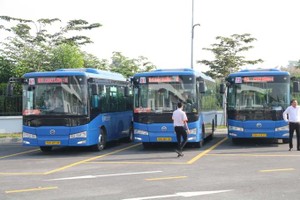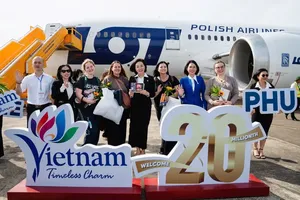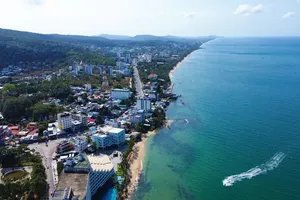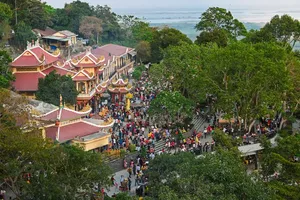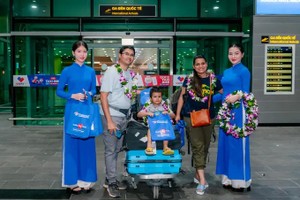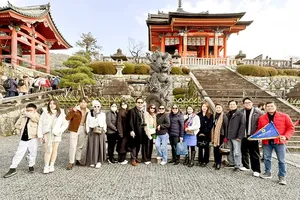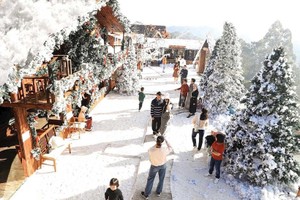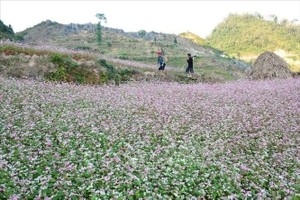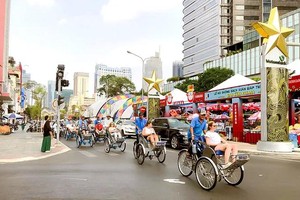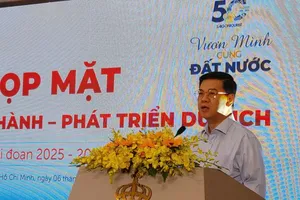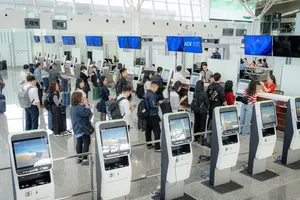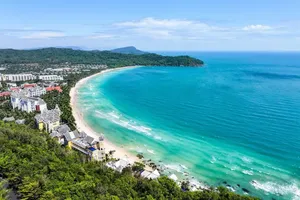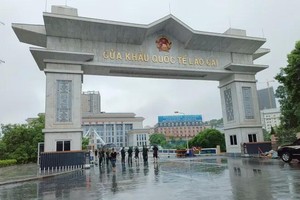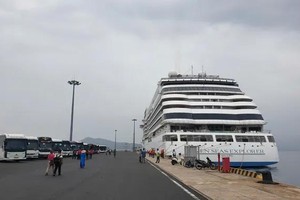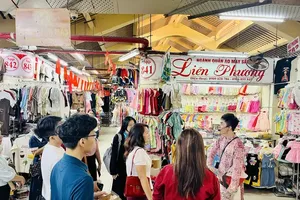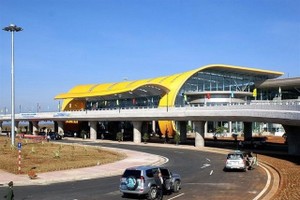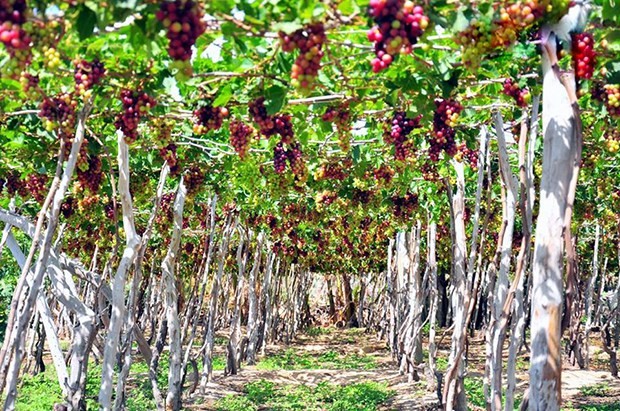
In recent years, the agro-tourism models have attracted many visitors and brought economic benefits to farmers and firms, contributing to new-style rural areas in many localities.
The farming model creates additional output for products and produces environmentally-friendly tourism products promoted to visitors.
The farms have become attractive destinations for visitors who like natural scenery and peaceful atmosphere in rural areas and who want to learn about the agricultural production process, and enjoy fresh fruit at farmers' gardens.
Nguyen van Chin , a farmer in the south-central province of Bình Thuan, has 1,700 pillars of dragon fruit grown to VietGAP standards in Ham Thuan Nam District's Ham My Commune.
“I have begun harvesting off-season dragon fruit and have sold them at high prices,” he said.
However, his family has kept some of the fruit on his trees to welcome visitors from HCM City booked for sightseeing at his garden.
“We want visitors to be able to harvest the fruits and gain hands-on experience in farming activities,” Chin said.
In the south-central province of Ninh Thuan, the country's largest grapefruit producer, many farmers have achieved positive results by combining grapefruit farming and eco-tourism.
Nguyen Van Moi with his own brand Ba Moi Grapefruit, for example, has earned a higher income by growing grapefruit on 2,000sq.m of cultivated land in Ninh Phuoc District’s Phuoc Thuan Commune, and has opened his garden for tourists.
Tourists can taste and learn how to take care of fresh grapes and other grape products such as syrup, wine and dried grapes, Moi said.
“How to identify the differences between local grapes and other imported grapes is shared,” he said.
Each farmer household can earn an average income of more than VND150 million (US$6,500) from growing grapes and tourism activities.
When the 105km coastal route connecting Ninh Thuan and Khanh Hoa provinces is completed, Ninh Thuan Province’s Ninh Hai District is expected to attract more tourists.
The district has encouraged local farmers to develop grapefruit orchards and other tourism products. There are 190ha of grape cultivation combined with eco-tourism in the district.
Taking advantage of fruit, pepper and cashew orchards, the southern province of Dong Nai has also created favourable conditions for local farmers to expand the combined model of agriculture and tourism.
Le Van Thang, deputy chairman of the provincial People’s Committee, said many farmer households in Tan Phu, Dinh Quan and Cam My districts and Long Khanh City are participating in this model.
Besides serving fresh fruit at the garden, most eco-tourism sites also provide food and drink services for visitors.
Long Khanh City has invested in infrastructure to serve a large number of tourists and organized many seminars to equip farmers with basic knowledge about tourism and fruit festivals.
More than 200 households in the city are developing the model. They have welcomed nearly 100,000 visitors in the last two years. The city’s total revenue from eco-tourism was estimated at VND60 billion ($2.5 million).
Farmers can earn an average profit of VND58 million ($2,500) per hectare a year from fruit farming, while they can earn a profit of up to VND130 million ($5,600) per hectare a year from growing fruit in combination with tourism activities.
Many agricultural businesses are also using their farms and processing factories to serve tourism services.
Green Farm of 3T Plus Trading and Service Co Ltd in the coastal southern province of Ba Ria- Vung Tau covers a 7ha area, including green-skin grapefruit garden, yellow melon cultivation area, wooden houses, stilt houses, a team-building campsite and restaurant.
The farm welcomes about 400 visitors every week. The average revenue is estimated at VND270 million ($11,650) per month. It also links with other farms such as the US farm, Binon Cocoa and Thai Duong Avocado for a closed tour.
